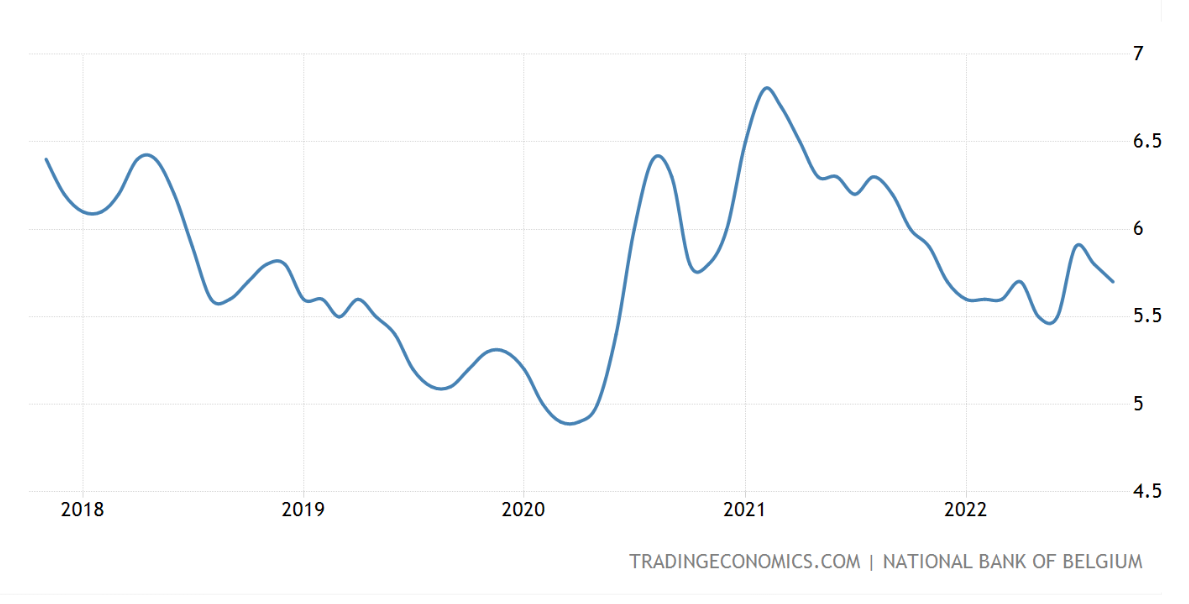Belgium's Deputy Prime Minster David Clarinval (MR) has stated that he fears "massive job losses" in Belgium next year as a consequence of Europe's burgeoning energy crisis.
In an interview with l'Echo, Clarinval further claimed that with business confidence declining and companies' profits "collapsing", Belgium's business outlook "has never been so bad".
"We should not underestimate the difficulties faced by companies today," Clarinval said. "The volume of [business] activity is declining, the outlook is pessimistic, profits are collapsing in the second quarter and the third will undoubtedly be even more difficult, given the explosion in energy prices. The majority of companies no longer plan to recruit. The state of business has never been so bad. I fear massive job losses in 2023."
Belgium's current unemployment rate is 5.7%, just 0.1% higher than it was on the eve of Russia's full-scale invasion of Ukraine in February — which precipitated Europe's current energy crisis — but 0.7% higher than it was on the eve of the Covid-19 pandemic.

Belgium's unemployment rate
In the interview, Clarinval also took aim at left-wing and workers' groups for choosing to strike at a time of national crisis: "To strike only because socialist trade unions... do not want to assume their responsibilities in times of crisis by simply applying the law of 96, it is regrettable."
Curbing industrial action
The 'law of 96' is a controversial piece of legislation which severely limits workers' bargaining power and their ability to negotiate wage increases. The International Labour Organisation (ILO) recently found that it violates the right to collective bargaining, a right enshrined in an ILO Convention ratified by Belgium in 1953.
Yet the Belgian Government has long claimed that the law is necessary to "maintain competitiveness" with other European countries – a viewed echoed by Clarinval.
"We are in a more complicated situation than our neighbours. I am worried because when we lose competitiveness, we no longer invest and we [have to] make savings, mainly by cutting jobs."
Related News
- Will Belgium become uncompetitive? Worker wage increases challenged
- Belgium in Brief: De Croo takes a pop at climate activists
Clarinval also stressed the need for European solidarity, particularly when it comes to attempts by Member States to implement an energy price cap — something which he doesn't believe that Belgium, as small country, can negotiate with suppliers on its own.
"Limiting prices at the Belgian level is unfortunately not possible, which is why we call for it at the European level," Clarinval said.

